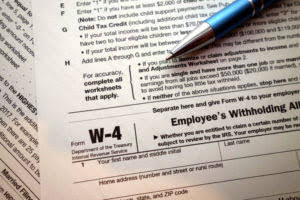Revenue and expense accounts are technically both temporary equity accounts, but they are significant enough to mention separately. Equity is often called net assets because it shows the amount of assets that the owners actually own after the creditors have been paid off. You can calculate this by flipping the accounting equation around to solve for equity instead of assets. Accounting is governed by established standards that ensure consistency and comparability across organizations. In most countries, companies follow either Generally Accepted Accounting Principles (GAAP) or International Financial Reporting Standards (IFRS). These frameworks dictate how transactions should be recorded and reported, ensuring transparency for stakeholders.
NEW TERMS
Accounting systematically keeps a record, summarises, and analyses economic transactions to provide a clean idea of a business enterprise’s financial health. It is the spine of financial management, promoting accuracy, transparency, and compliance. There are 671,855 certified public accountants in the U.S. as of August 2024, according to the National Association of State Boards of Accountancy. Certification requirements vary, with some roles requiring additional educational requirements above the bachelor’s degree and successful completion of rigorous examinations.
Cost Accounting
In cost accounting, money is cast as an economic factor in production, whereas in financial accounting, money is considered to be a measure of a company’s economic performance. Additionally, accountancy involves the analysis of financial activity using accounting data. If you become a business manager, you will use specific principles in normal balance the field of accountancy to make informed decisions based on financial reports and data collected by bookkeepers and overseen by accountants. Accounting is the process of keeping track of all financial transactions within a business, such as any money coming in and money going out. It’s not only important for businesses in terms of record keeping and general business management, but also for legal reasons and tax purposes.
- Many say that accounting probably developed alongside our ability to write words, count numbers, and start using money.
- Accounting, on the other hand, refers to the process of maintaining those records.
- Human Resource Accounting can be understood as the process of valuing, recording, and presenting the worth of human resources in a systematic manner, in the company’s account books.
- It is a more complete and accurate alternative to single-entry accounting, which records transactions only once.
What Is the Accounting Cycle?

This distinction ensures accurate tracking of financial performance and position. When running a small business, you should choose an accounting software product and consider hiring an accountant. Accounting software does a lot of the heavy lifting (such as keeping track of debits and credits) for you. However, it’s still important to understand basic accounting principles to know what’s happening behind the scenes. Business owners should be able to enter transactions, reconcile accounts and interpret financial statements accurately.
What Is Accounting? The Basics Of Accounting

Each level of education could unlock additional jobs in the fields of accounting and finance. Those who hold a certificate from a basic accounting course could qualify to work as an administrative assistant, bill or account collector, or teller at a financial institution. For most accounting and auditing professions, you’ll need at least a bachelor’s degree in accounting or a related field. You may need to complete additional coursework to become a Certified Public Accountant (CPA). Degrees in accounting, or accountancy degrees, are the culminating degree of an accounting or finance program that prepares the holder for a career in the field.
This resource introduces and explains basic accounting terms, principles, acronyms, and abbreviations. It was developed for students, entrepreneurs, and anyone else looking to brush up on essential concepts. The UK Generally Accepted Accounting Principles (UK GAAP) outline specific Accounting standards and principles for businesses operating in the United Kingdom. By maintaining accurate records and adhering to regulations, Accounting ensures compliance with legal standards and avoids potential penalties. Accounting is critical for groups and individuals and operate as the basis of economic selection-making and compliance. By providing accurate facts and insights, Accounting drives organisational success and guarantees transparency and duty in every financial transaction.


Every profit-seeking business organization that has economic resources, such as money, machinery, and buildings, uses accounting information. Accounting also serves as the language providing financial information about not-for-profit organizations such as governments, churches, charities, fraternities, and hospitals. However, these entities are not businesses because they https://www.bookstime.com/ do not operate in a for-profit manner.
- But one requirement is universal—the passing of the Uniform Certified Public Accountant Examination.
- This classification facilitates the orderly tracking and analysis of financial data.
- The simplest definition of accounting is the act of recording financial transactions, typically for business purposes.
- Today, he works as a multimedia specialist at University of Phoenix where he covers a variety of topics ranging from healthcare to IT.
- Accountancy explains – for what reason and in what way, the firm’s books of accounts are prepared, as well as the manner in which accounting information is summarized and communicated to its users.
- The first professional association for accountants, the American Association of Public Accountants, was formed in 1887, and CPAs were first licensed in 1896.
- These processes need to be revised whenever the operations of a business change, such as when a new product line is offered to customers.
- Forensic accounting is the process of carrying out forensic investigations to present in a legal proceeding.
- Accounts are the building blocks of any accounting system, serving as the foundation for recording, categorizing, and summarizing financial transactions.
- Revenue and expense accounts are technically both temporary equity accounts, but they are significant enough to mention separately.
Accountancy is a wider term and accounting comes under the perspective accountancy of accountancy. Accounting means recording, summarising, analysing and reporting financial transactions. It is concerned with keeping and maintaining books of accounts of the business. A business entity, operating for profit, must keep a systematic record of the day-to-day events so that it can know about its profits/losses, assets and liabilities. Even institutions, which do not have profit earning as an objective, must keep a record of their incomes, expenditures and financial status.

These adjustments allow others within the business to understand those projections’ potential impacts in relatable terms. Current liabilities are liabilities due within one year of a financial statement’s date. In the United States, privately held companies are not required to follow GAAP, but many elect to do so voluntarily. However, publicly traded companies whose securities fall under SEC regulations must use GAAP standards.

Leave a Reply